UC San Diego Facilities Management and UCSD Information Technology Services have implemented several new programs in an effort to reach the UCSD Zero Waste 2020 goal. In addition to already existing programs, these new initiatives include an installation in the UCSD mobile app that notifies users when there is leftover food from campus events, as well as the “Bin Buddy”, which strives to minimize office waste by decreasing the size of the trash can.
Zero Waste 2020 is a program designed to create a more sustainable campus, with “at least 90 percent diversion of materials from landfill or incineration.” According to the program, UCSD outlines this through reducing total municipal solid waste generation, ending the sale, procurement or distribution of Expanded Polystyrene, and by observing greenhouse gas emissions from waste management.
Since 2008, several UCSD committees have published annual Climate Action Plans that set guidelines and programs for staff, students, and faculty that contribute to reaching net carbon neutrality by 2025. Several of these committees include the Advisory Committee on Sustainability, Design & Development Services, and Capital Project Management. In 2002 the UCSD administration started publishing its greenhouse gas emissions through the Climate Action Registry.
In March 2007, the University of California administration joined the Second Nature’s Carbon Commitment, also known as the American College and Universities President Climate Commitment, when the former University of California President Robert Carr Dynes signed the University of California system as a signatory participant in the ACUPCC. The ACUPCC is a network of colleges and universities who pledge to mitigate climate change through campus-wide initiatives.
According to the UCSD 2008 Climate Action Plan, “The ACUPCC includes a number of requirements, including the development of a Climate Action Plan to establish a target date and interim milestones for reaching climate neutrality. In part, this Climate Action Plan was created in response to the requirements in the ACUPCC.”
Currently, all UC campuses have some form of a climate action plan through the University of California Office of the President.
The UCSD 2019 Climate Action Plan has been updated with UCSD’s strategies for reaching carbon neutrality, which include categories such as Green House Gas Inventory, Mitigation Strategies, and Water and Waste.
In addition to the Climate Action Plan, the UC Office of the President launched the Carbon Neutrality Initiative in November 2013 in an attempt to eliminate the UC System’s reliance on fossil fuels and reduce the release of greenhouse gases from campus buildings and vehicle fleets.
“The overwhelming scientific consensus is that climate change is being driven by the release of carbon dioxide into the atmosphere, primarily from the burning of fossil fuels,” the 2013 Carbon Neutrality Initiative Statement states. “The University of California has responded to this growing environmental crisis with direct action aimed at ending its reliance on fossil fuels.”
The newly installed notification on the UCSD mobile app, which also provides information on shuttles and dining options, now sends notifications when there is leftover food from campus events. This is meant to combat food insecurity at UCSD.
A.S. Assistant Director of Administration John Weng brought the idea of the notification system to the Triton Food Pantry managers after attending a system-wide meeting for the Global Food Initiative in Spring 2017. At the meeting, he learned that the University of California, San Francisco has a similar text-based system for their students. Weng then worked with UCSD IT Services to start a similar program at UCSD. “We explored a text service but ultimately landed at integrating it with the UC San Diego app,” Weng said.
Weng reached out to Alex Wu, an employee of UCSD Information Technology Services, before the installment launched in Fall 2018.
“Student developers made significant contributions to the free food functionality, and we are excited to continue the collaboration on building out additional features,” Wu said.
According to a 2016 report from the UCSD Basic Needs Insecurity Committee in their system-wide survey, 39 percent of UC students reported that cost impeded their access to affordable healthy food.
“Our basic needs are at the absolute baseline of what we need as human beings,” Weng said. “As someone who coordinates events with our students, I’m also aware of how hard it is to estimate how many people show up to events and I hate seeing food go to waste.”
The UCSD chapter of the Food Recovery Network also strives to break this cost barrier by sending food packages from Housing Dining Hospitality to the Triton Food Pantry. Partnered with the San Diego Food Bank and Garden of Eden, the Triton Food Pantry also makes canned and dried goods available to food insecure students.
Another upcoming campus program meant to limit waste is the Bin Buddy program, which took flight in January 2019. UCSD Facilities has been replacing office desk-side trash cans with a smaller can that latches onto the recycle bin. The Bin Buddy Program has currently been implemented in certain offices in the Scripps Institution of Oceanography, the Campus Services Complex, and Roger Revelle and John Muir Colleges.
According to the Bin Buddy Home page on Blink, “Most office waste is recyclable. When you recycle properly and reuse items, like coffee mugs and refillable water bottles, the Bin Buddy is large enough for your non-recyclable waste items.”
Some office employees have liked the idea. “Coming from an environmentally-focused research organization, I was not surprised that we started a new policy for the bins,” said SIO Communications Intern Tricia Dutton. “It makes us visually see the amount of trash we waste every day, and therefore, could lead to more sustainable habits.”
However, some other employees have found it difficult adjusting to the program. “It just takes getting used to. It’s small,” department of physics Student Affairs Manager Catherine McConney said. “Since [the bin] doesn’t have the liner anymore, I have to think about it more and whether I need to walk to the kitchen to throw something away.”
Revelle Humanities Professor Stephen Cox also voiced his opinion on the Bin Buddy Program.
“There may be one person on campus who thinks that Bin Buddy (what an infantilizing name!) is anything but silly and irritating, but I haven’t met that person,” Professor Cox told the UCSD Guardian. “The assumption behind the program seems to be that people come to work or school intending to create all the waste they can, and this perverse desire must be physically thwarted; we must have zero waste!”
“ The truth is that if you’re not wasting anything you’re not producing anything either; nothing runs without friction,” Cox continued. “No one should have to think, ‘I could invite my students to a pizza lunch, but that would be wrong — think of that dirty, wasted pizza box!’ One thing that nags and nannies don’t think about is the time and energy necessary to produce, maintain, clean up after, and otherwise deal with their mechanisms for saving the environment–time and energy that in this case are simply wasted.”
This program is scheduled to complete mid-2019.
Several past and present HDH programs have also been implemented to limit food waste in the dining halls. The clean pre-consumer food waste is collected by back-hall dining staff and sent to the Mira Mar Greenery as compost. In the past, the dining halls also saw a post-consumer food compost.
However, according to Student Sustainability Collective Director of Internal Development Nhat Nguyen, “the contamination was high enough for the Greenery to not accept the compost.”
While the dining halls may not compost all food waste, a pilot program in the Revelle dining hall 64 Degrees collects their own food waste to be sent to Roger’s Community Garden, where it is converted into fertilizer.
Nguyen, who is also a representative for Strategic Initiatives at HDH Wellness and Engagement commented on how students can help mitigate food in the dining halls in order to reflect a culture of understanding in food and waste management.
“The last thing we want to do is put out compost bins in the dining halls without a concerted and effective campaign for culture and education changes to the student population and have contamination,” Nguyen stated. “If you ask dining what types of things they see thrown away, they will tell you that students routinely throw away large, heavy, reusable ceramic plates in the trash! It’s not uncommon nor rare; it happens to anything and everything that you could imagine.”
Nguyen noted that the Zero Waste 2020 goal could be achieved by greater promoting this self-correcting culture through “marketing and student engagement.”
“We need students to self regulate but also we don’t need everyone to be experts about all things waste,” Nguyen stated. “We just need them to be mindful of the things that are relevant such as what could be on their plate.”
The UCSD mobile app is available for both iOS and Android users. In addition to receiving the food notifications, students can also view a schedule of their classes and finals, find available parking, and track campus shuttle arrivals.
The Triton Food Pantry can be found next to the Hub Basic Needs Center, which is located in the Old Student Center between Muir and Revelle Colleges.
Photo courtesy of UC San Diego News Center.


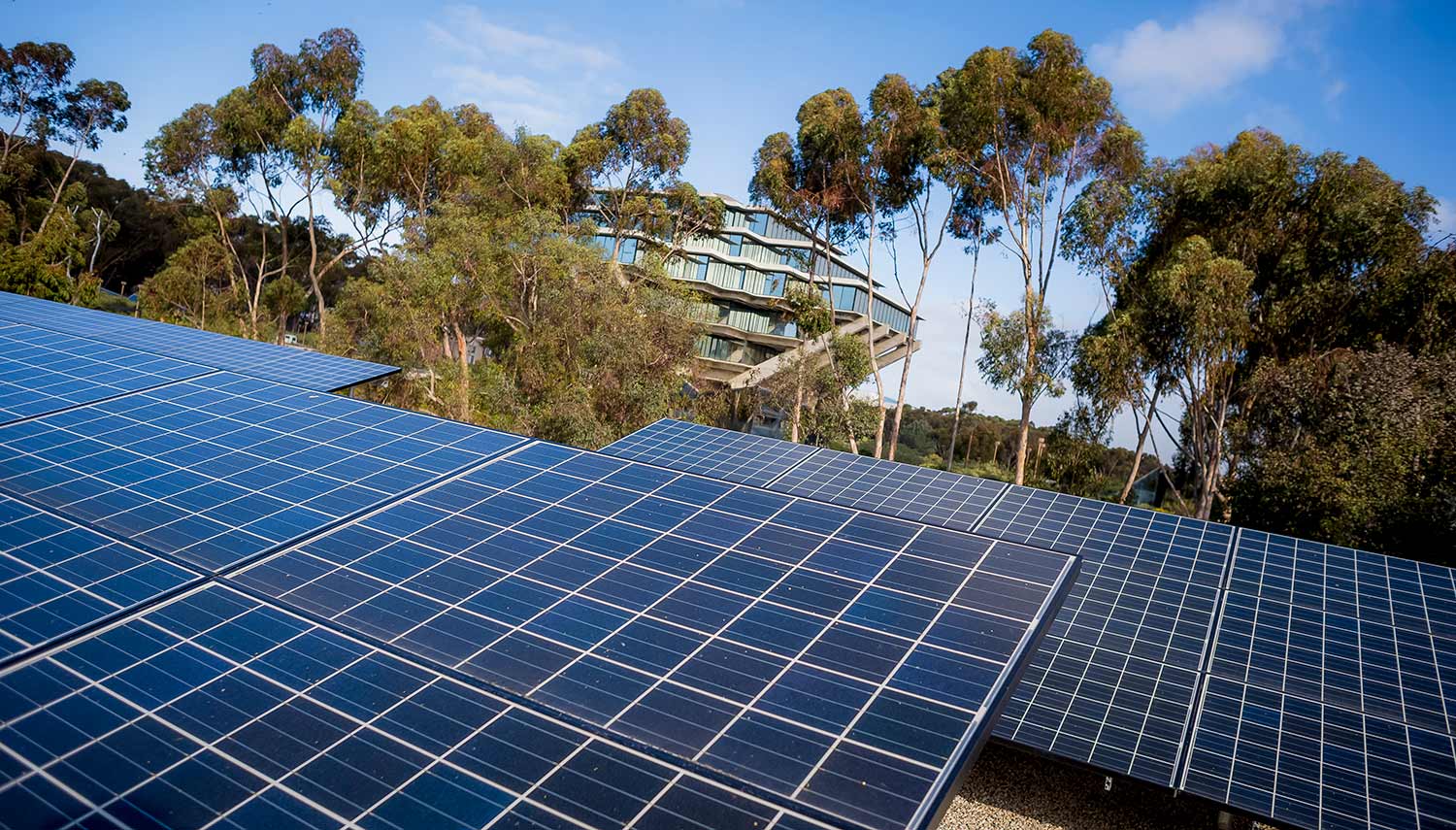
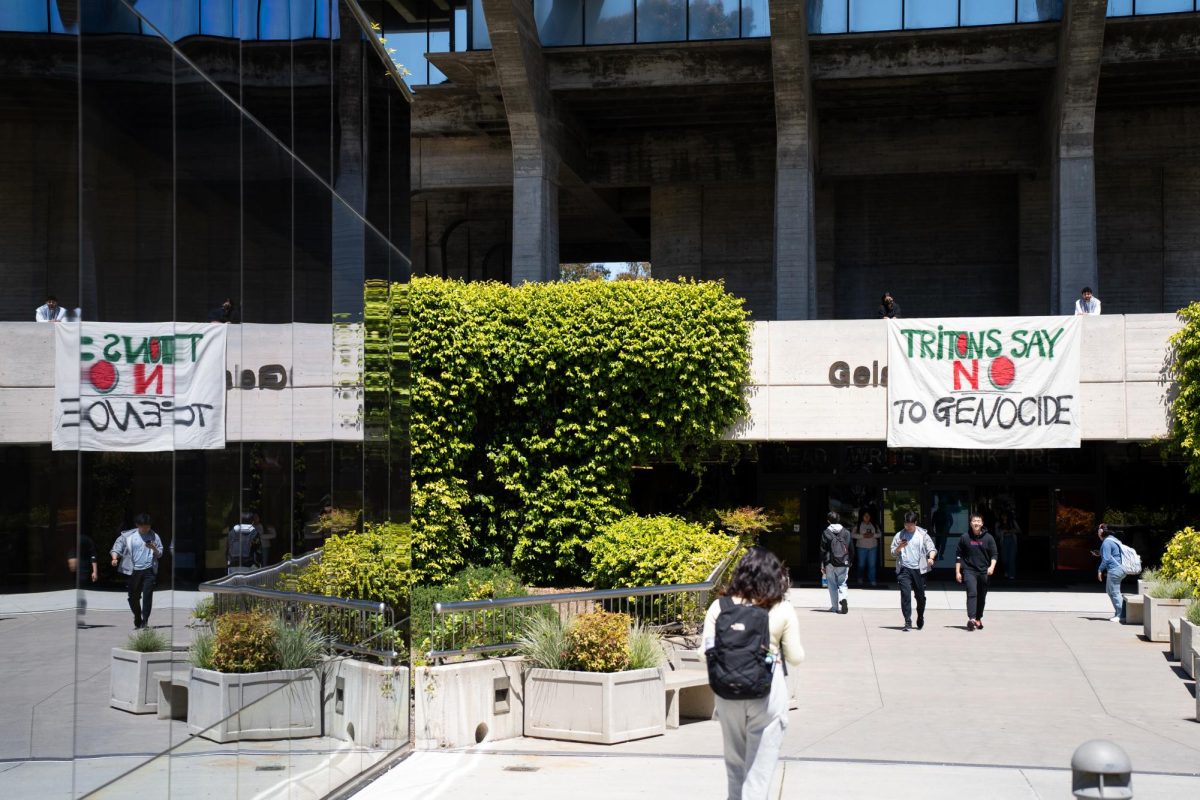
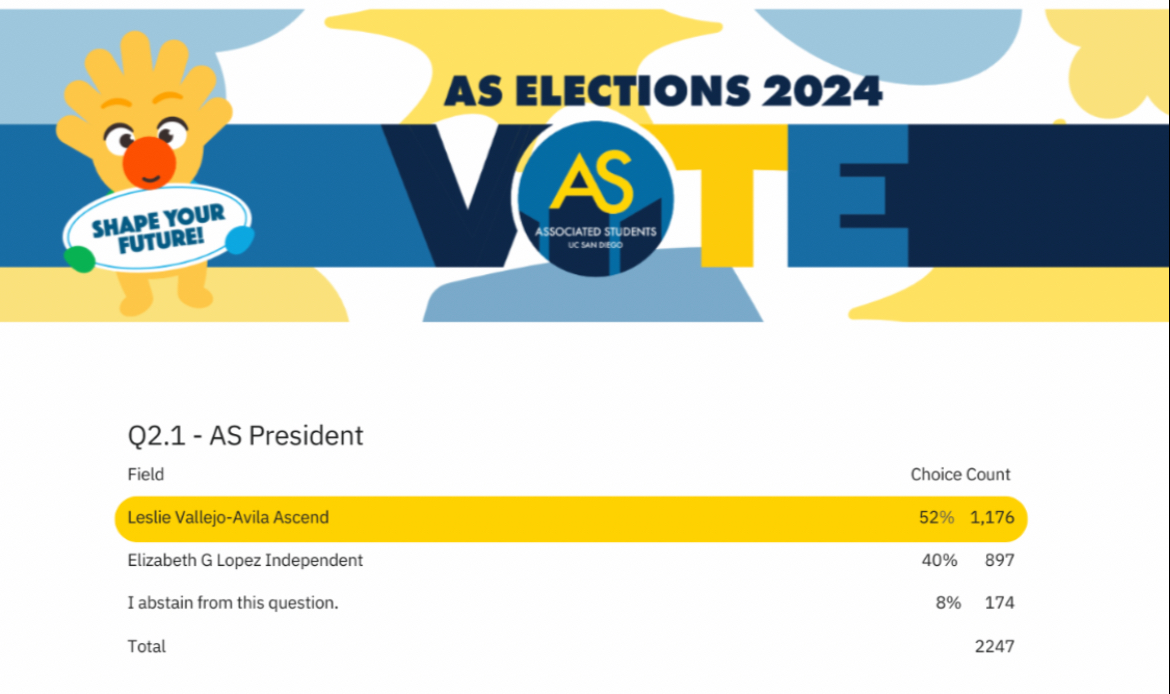





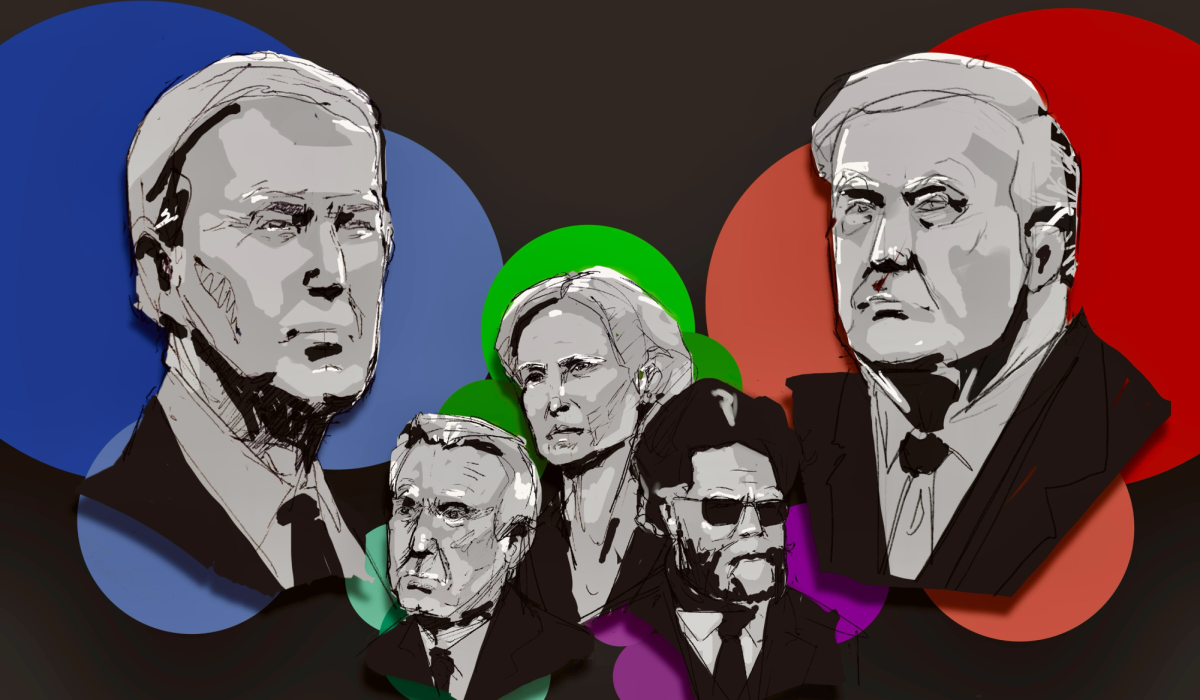
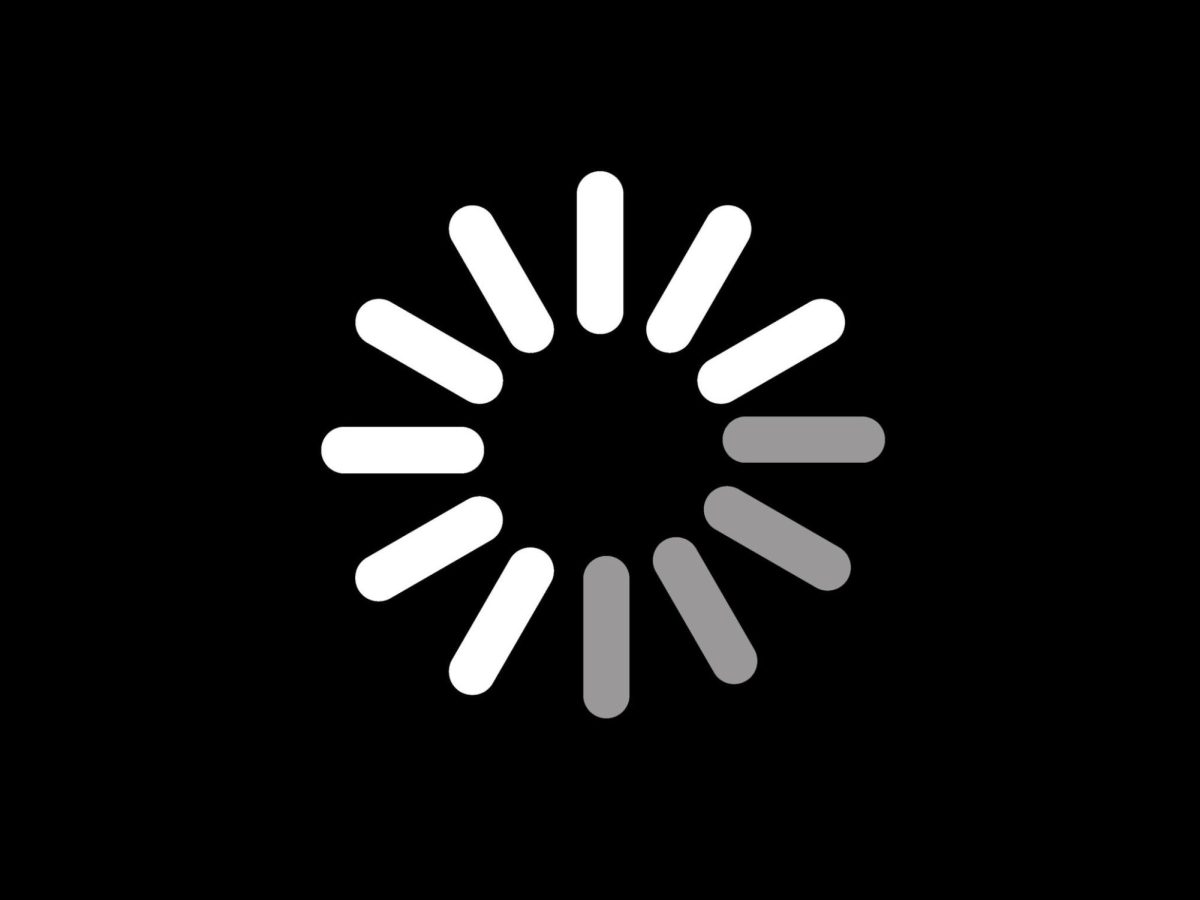
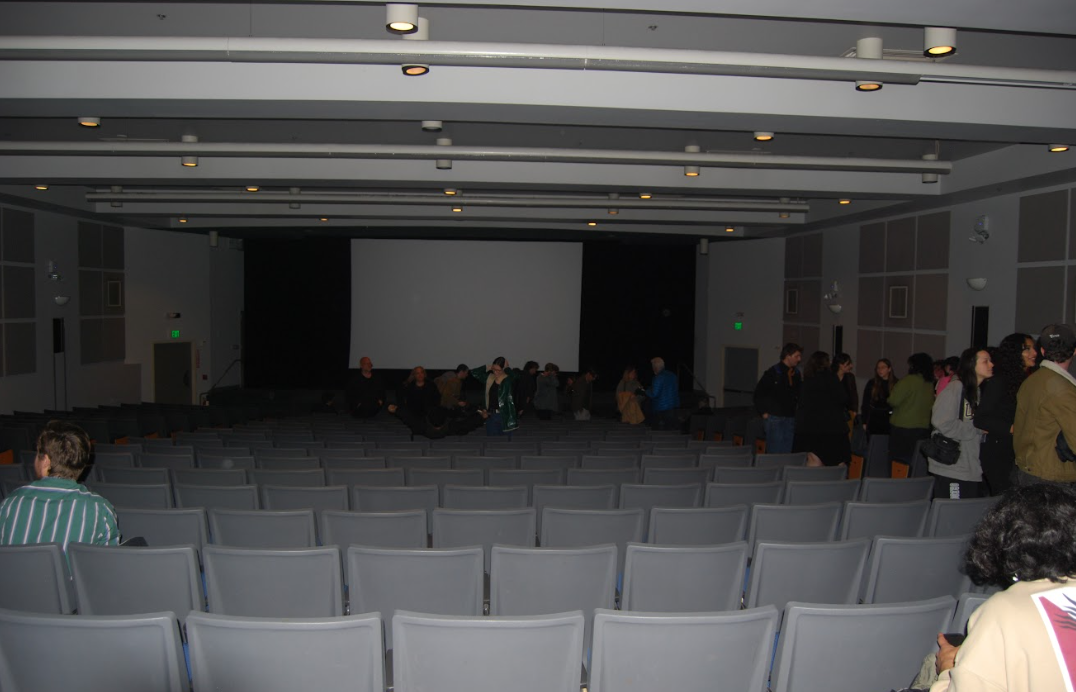
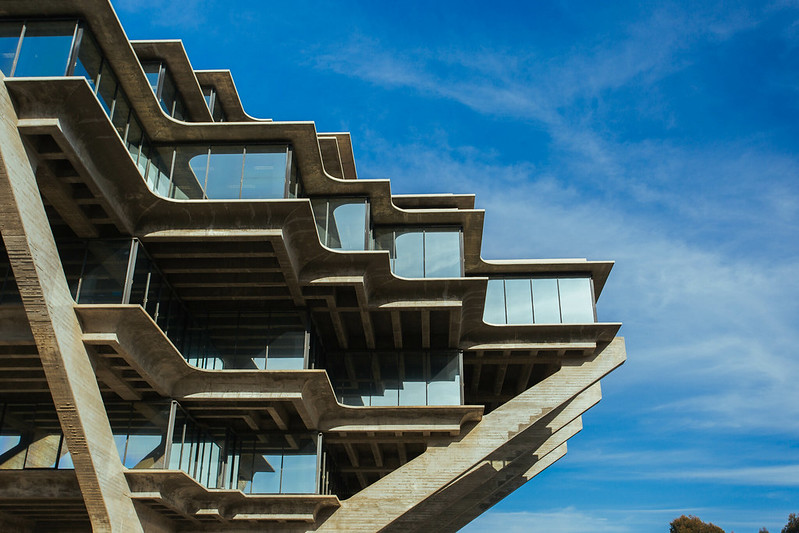

TweakBox • May 9, 2019 at 10:37 pm
All UC campuses have some form of a climate action plan through the University of California.@
TweakBox oniOS12